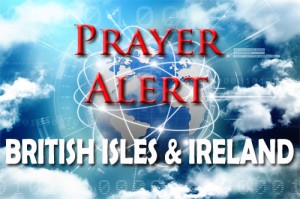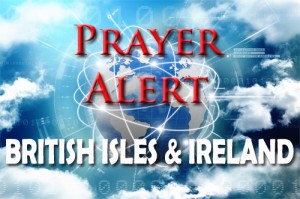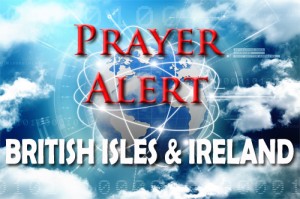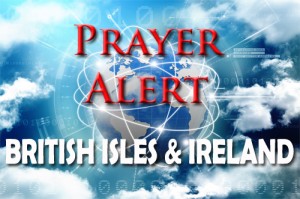
David Fletcher
David Fletcher is Prayer Alert’s Editor.
He is part of a voluntary team who research, proof-read and publish Prayer Alert each week.
If you would like to make a donation towards our running costs, please click here.
Muslims welcome Ramadan, the ninth month in the Islamic calendar, as a period of fasting, self-evaluation and spiritual growth. 1.7 billion people (25% of the Earth’s population) will pray and fast during daylight hours. In the UK, that is nineteen hours a day. Muslims everywhere are encouraged to be devout in prayer, read the Quran and practise kindness to the people around them. Muslim believers are the majority in 49 countries, which makes Islam a huge part of the world; the effects of the fast are so great that they affect the global economy. During Ramadan, Muslims worldwide will seek blessing on their lives and families and peace for those in their communities. During this time, the Church can be praying for Muslims, particularly for practising Muslim refugees, many of whom are homeless, without possessions, needing refuge, seeking ‘spiritual relief’ in their brokenness.
Many are calling it the worst natural disaster in Canada's history: a mammoth inferno sweeping across the northern regions. At the time of writing, 26 May, fire conditions are high to extreme, Fort McMurray remains out of control, and fire covers 566,188 hectares. Fifteen different wildfires are burning. Firefighters are conducting controlled burns to limit potential flare-ups later. There are 2,054 firefighters, 88 helicopters, 256 pieces of heavy equipment and 25 air tankers currently battling the fires. Wildfire crews from across the world are supporting Canada’s efforts. The forecast for today is 22 Celsius, humidity 30%, with a possibility of thundershowers on Thursday or Friday. Pray for rain. Pray for firefighters and their families. Pray for the safe re-entry of residents to burnt-out areas. Pray for those organising and receiving temporary housing support. Pray for the information centres being set up throughout the region to offer resources for returning residents.
Fierce fighting has been raging around Fallujah since Iraq's military launched an offensive on Monday to reclaim the traditionally Sunni-dominated city from IS. The UN says it fears for the safety of an estimated 10,000 families trapped there, who will pay a heavy toll for the liberation of the city. Iraq's airforce has airdropped thousands of leaflets on Fallujah instructing residents to leave and promising them passage through ‘safe corridors’ established by the military to camps outside the city. The government has set up a hotline for residents to call or text if they require evacuation, while state television has broadcast advice to residents to wave white flags over their homes if they can't flee and to stay away from IS facilities and gatherings. Activists say IS has been preventing residents from leaving and has cut many communication lines, leaving thousands potentially caught in the crossfire between government troops, backed by Shiite militia and tribal fighters, and IS.
The latest of a long series of Iranian threats against Israel was spoken by Ahmad Karimpour, a senior advisor to the Iranian Revolutionary Guard. ‘If the Supreme Leader’s orders are to be executed, with the abilities and the equipment at our disposal, we will raze the Zionist regime in less than eight minutes’. Iran’s ‘Supreme Leader’ Ali Khamenei, its 76-year-old head of state and most powerful figure, has repeatedly threatened to annihilate Israel. Earlier this month, Iran’s military successfully tested a precision-guided ballistic missile with a 2,000- kilometre range (and so capable of reaching Israel). Iran signed an accord last July pledging to curb nuclear activities in exchange for lifting of sanctions: illogically, ballistic missiles were not covered in the agreement.
After a widespread survey of northern Ghana in 2011, it was decided to launch a coordinated effort among the Komba people, a subgroup of the nearly 600,000 Konkomba. Demonstrating a unique openness to the gospel, many Komba villages have openly invited the presence of Christian workers. Responding to this open door, OneWay Africa is currently partnering with 17+ national and international ministries to see the Komba reached in this generation, with a focus on local leadership training, evangelism and church planting, they are seeing a movement to Christ begin. To date, 368 Komba leaders have been trained in disciple-making and church planting, resulting in at least 63 new churches. A core value in their approach is to work side-by-side with local leaders, equipping them to do what God has called them to do – transform lives, plant churches and propel new believers among their own people and beyond.
People are in desperate need of God. Wayne came to faith through patient, sensitive and long-term work by London City Mission (LCM). He was five or six when he started going to mid-week sports at their centre, then later to a youth club called Jucos, with a Bible class. ‘It wasn’t the stories that drew me in: it was the sport. I’d be at the centre to play sport in the week, and on Sunday I’d go to Jucos, stay for tea and the evening service. I loved being at the centre. Over time, faith became real and relevant.’ He gave his life to Jesus and today he lives in Slough with wife Joyce and son Chris. He works with a charity called Christian Connections in Schools, a local ministry partner with Scripture Union. ‘My work now is exactly the same as what LCM did with me all those years ago: talking about what Jesus said and did, and its relevance today.’
The Queen delivered her 2016 speech this week, setting out the Government’s agenda for the coming session. Measures will be introduced to help the lowest-income families to save, through a new Help to Save scheme. Pray for those who will still have to wait for a first payment of Universal Credit and struggle to repay hardship loans and still stay out of debt. Pray also for the Government commitment to build a million new homes and promote home ownership. May they implement workable changes that end homelessness quickly and help first-time buyers. The Government will reform prisons and courts to give individuals a second chance. Prison governors will be ‘independent legal entities with the power to enter into contracts, generate and retain income, and establish their own boards with external expertise.’ Pray for the prison service to be wise and discerning as changes are implemented, and not to be tempted to cut corners or widen profit margins.
An internal review by the BBC says its content is ‘too Christian’ and should be more balanced. Aaqil Ahmed, a Muslim and the BBC's head of religion and ethics, compiled a report that suggests the company should give more airtime to Muslim, Hindu and Sikh faiths. One proposal is for the BBC to broadcast Friday prayers from a mosque similar to Songs of Praise on Sundays. Ahmed said in a statement that they look at the number of hours they produce, and measure that against the religious make-up of society. The number of Muslims has doubled in ten years, to three million. According to The Daily Telegraph, controversy surrounded Ahmed's appointment in 2009 over allegations he had demonstrated a pro-Islam bias in his former position at Channel 4. The Muslim Council of Britain said, ‘We would not wish Christians to have any less exposure.’
Ofsted has warned, ‘Thousands more children than previously thought are at risk of harm and indoctrination in illegal madrassas and faith schools.’ Inspectors uncovered 100 ‘underground’ schools across Britain, many catering to very religious communities. A third of illegal schools were Muslim, and one-sixth either Christian or Jewish. Others were private, non-religious schools. Investigators were deeply alarmed by sub-standard education which undermined Government efforts to ensure schools promote British values. In a drive to crack down on radicalising pupils, new rules state that schools must promote tolerance of other faiths and lifestyles. The illegal schools have not registered with the Government and so are not subject to any regulation. Ofsted said that pupils attending these schools may be at significant risk of harm and indoctrination. Inspections revealed serious fire hazards, and unsafe and unhygienic premises. Ofsted believes that unregistered schools uncovered so far are a small proportion of the total of those operating.
Last week we prayed for Nazanin Zaghari-Ratcliffe, a British charity worker who was arrested at Baghdad airport and held in solitary confinement without charge. A campaign to free her was instigated with a petition to David Cameron to act on her behalf. On Thursday Nazanin’s husband Richard wrote on his blog, ‘I was not planning an update - but I wanted to share. Nazanin told her family a few hours ago that she has been moved out of solitary confinement, and is now kept in a group cell. More details will follow when I have spoken to the family, but it is a happy day. Thank you to everyone who has made that happen.’ Next week he is going to Brussels to petition about her case.










